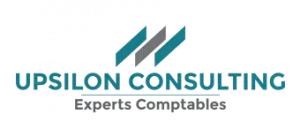Finance law 2024 in Morocco – Main tax measures
Main measures of the Finance law 2024 in Morocco (loi de finance, or LDF 2024)
The year 2024 in Morocco is marked by the adoption of a new finance law, introducing significant tax reforms.
These changes reflect a desire to adapt the tax system to contemporary economic realities in Morocco, while promoting inclusive and sustainable growth.
This finance law is crucial for businesses and citizens alike, because it redefines the rules regarding taxes and tax contributions. This article provides an overview of the key tax measures of the Finance law 2024 in Morocco, highlighting their potential impacts on Morocco’s different economic actors.
Finance law 2024 in Morocco – New tax provisions

The Finance law 2024 in Morocco in Morocco introduces substantial tax reforms, oriented towards modernization and equity. This article explores the key tax measures of this new law, aimed at optimizing the Moroccan tax framework and effectively responding to current economic needs. Among the most notable reforms, we find:
- Generalization of VAT exemption on essential goods
- Introduction of a withholding tax regime for VAT
- Harmonization of VAT rates
- Special VAT reverse charge regime
- Solidarity of business leaders in matters of VAT
- VAT for digital services provided by non-residents
- VAT on rentals of unequipped premises for professional use
- New VAT rate of 10% for maritime fishing equipment
- New VAT sanctions
- Return of the retention rule for fixed assets
- Clarifications and new developments concerning corporate tax (IS)
- Deductibility of social security contributions for certain professionals and flat rate deduction for artists in income tax (IR) .
- Clarification on the transfer of securities acquired by inheritance
- Amnesty measure for undeclared assets
- Other measures : Including changes in rates for certain acts, new obligations for notaries, a simplification of procedures relating to abuse of rights, and a discharge contribution on bad checks.
These reforms demonstrate Morocco’s commitment to promoting a more equitable, transparent tax system adapted to current challenges. In the following sections, we will analyze these measures and their implications in detail.
Main tax changes of the Finance law 2024 in Morocco

Finance law 2024 – Towards a VAT reform
The Finance law 2024 in Morocco introduces several major modifications, reflecting an orientation towards greater equity and efficiency in the tax system. Here are some of the most important VAT reforms:
- Generalization of the VAT exemption on essential goods : This flagship measure aims to alleviate the financial burden on Moroccan households by extending the VAT exemption to a wider range of essential products, such as food, medicines and other basic goods. The objective is to reduce the cost of living, particularly for the most vulnerable sections of the population, while maintaining an efficient tax structure.
- Establishment of a withholding tax regime for VAT : By introducing this regime, the law aims to combat tax fraud, particularly with regard to false invoicing. This measure requires businesses to take a more active role in collecting and paying VAT, thus increasing the transparency and efficiency of the Moroccan tax system.
- Harmonization of VAT rates : With the progressive alignment of VAT rates, this reform seeks to mitigate distortions of competition and ensure increased fiscal neutrality. Harmonization of rates simplifies the tax framework and promotes a fairer and more transparent business environment, beneficial for both consumers and businesses.
This VAT reform in the Finance law 2024 in Morocco demonstrates a clear desire to modernize the Moroccan tax system. This reform aims to make the system fairer and more adapted to contemporary economic challenges. They are part of a global reform approach aimed at improving the competitiveness of the Moroccan economy while guaranteeing better redistribution of resources.
Other measures relating to VAT
The 2024 finance law introduces several important measures concerning VAT, which aim to optimize collection and strengthen tax fairness:
- Special VAT reverse charge regime : This new measure allows taxable customers to declare and pay VAT for purchases of goods and services made from suppliers located outside the scope of the tax or who are exempt from it. . This approach aims to simplify procedures for businesses and ensure better tax compliance.
- Solidarity of company directors in matters of VAT : Establishing joint liability for company directors in the event of non-payment of VAT. This measure strengthens tax responsibility and aims to discourage tax evasion practices.
- Application of VAT to the provision of digital services by non-residents : This measure extends VAT rules to services provided online by non-residents to Moroccan customers. This includes the obligation for these providers to register and pay VAT in Morocco, thus ensuring greater tax fairness between local and foreign companies.
- Extension of VAT to rentals of non-equipped premises for professional use : Broadening the scope of VAT to certain rental operations, this measure aims to rationalize the tax regime and guarantee fair taxation on different forms of real estate income. .
- New VAT rate at 10% for maritime fishing equipment : With this specific rate, the Moroccan government aims to support the fishing industry by reducing the costs of essential equipment, thus contributing to the sustainability and efficiency of this vital sector for the economy.
These measures show particular attention to the evolution of business practices and the challenges posed by the digital economy, while seeking to support key sectors of the Moroccan economy.
Measures of the LDF 2024 in terms of IS (Corporate Tax) and IR (Income Tax)

The 2024 finance law brings significant changes to corporate tax and income tax, aimed at clarifying and optimizing the taxation of companies and individuals:
- Clarification of the application of the IS rate : The 2024 finance law provides details on the application of the IS rate , in particular by limiting the application of the rate of 35% only for the exercise of exceeding the IS rate. threshold of 100 Million Dhs if this threshold was reached because of a non-current result. This measure aims to provide greater clarity and predictability for the companies concerned.
- Specific corporate tax exemptions : The finance law also introduces corporate tax exemptions for certain foundations, such as the Mohamed VI Foundation for Science and Health, recognizing their important role in Morocco’s social and scientific sector.
- Deductibility of social contributions for professionals : With regard to IR, the 2024 finance law allows independent professionals to deduct social contributions paid within the framework of compulsory basic health insurance and the pension scheme, which constitutes a significant tax advantage for this category of taxpayers.
- Clarification on the transfer of transferable securities acquired by inheritance : The LDF 2024 provides clarification on the tax treatment of transferable securities and other capital and debt securities acquired by inheritance, contributing to a better understanding and application of the tax rules in these situations. .
the LDF 2024 is part of an effort to adapt taxation to contemporary economic and social realities, while seeking to simplify and clarify the tax framework for businesses and individuals.
Amnesty relating to natural persons in the Finance law 2024 in Morocco
The 2Finance law 2024 in Morocco introduces an important tax amnesty measure , aimed at encouraging the voluntary regularization of taxpayers’ tax situations. This measure is particularly relevant for individuals holding undeclared assets:
- Amnesty for undeclared assets : The Finance law 2024 in Morocco provides a regularization option for individuals holding liquid assets, movable or real estate not intended for professional use, or loans granted to third parties, which have not been declared before on January 1, 2024. These taxpayers can opt for a flat-rate tax at a rate of 5%, subject to deposit of liquid assets with a bank and payment of a 5% contribution in respect of declared assets.
- Withholding tax for artists : The finance law also applies a withholding tax at the rate of 30% after a flat-rate reduction increased to 50% on the gross amount of fees granted to artists, whether they work individually or formed into troops.
These amnesty and tax regularization measures reflect a desire by the tax administration to encourage compliance while offering an opportunity for regularization within a legal and simplified framework. They aim to integrate previously undeclared assets into the formal tax system, thus contributing to better tax fairness.
Amnesty on Foreign Assets in the Finance law 2024 in Morocco
- Target of the Amnesty :
- This amnesty is aimed at all natural and legal persons with a tax residence, a head office or a tax domicile in Morocco.
- It concerns assets and cash created abroad before January 1, 2023 , in violation of foreign exchange regulations.
- Declaration and Anonymity :
- People holding assets abroad can make their declaration anonymously to the bank of their choice, according to a model pre-established by the Office des Changes.
- This declaration must include the list and nature of the assets to be declared.
- Liberation Contribution :
- For natural and legal persons who have not benefited from the discharge contribution or spontaneous regularization, the rate of this contribution is set at 10% of the acquisition value of property and financial assets held abroad.
- Payment of this contribution releases the person concerned from paying penalties relating to violations of exchange regulations, as well as taxes, fines, penalties and related surcharges.
- Reporting Period :
- The people concerned have until December 31, 2024 to declare their assets and pay the final contribution.
- Allocation of Funds :
- The amounts collected through this final contribution will be allocated to the Social Protection and Social Cohesion Support Fund.
- Conditions to benefit from the Amnesty :
- Submit a declaration to a credit institution approved as a bank.
- Repatriate foreign currency liquidity as well as the income and products generated by them.
- Transfer at least 25% of this liquidity on the foreign exchange market in Morocco for dirhams, with the possibility of depositing the remainder in foreign currency or convertible dirham accounts with Moroccan banks.
Read the press release from the Exchange Office .
Upsilon Consulting: Your Partner in Tax Planning and Optimization
At Upsilon Consulting, we are more than just a tax consulting firm ; we are partners committed to the financial success of our clients.
Our expertise is based on constant monitoring of tax developments, thus providing you with precise and up-to-date information and guidance. Faced with recent reforms such as the Finance law 2024 in Morocco, our team of experts is ready to inform you and support you in your tax planning.
Our approach is proactive: we identify the opportunities and challenges specific to each client, providing them with tailored advice to optimize their tax situation. Whether navigating tax regulations, planning investment strategies, or leveraging the benefits of a tax amnesty, Upsilon Consulting is here to ensure your financial decisions are both enlightened and advantageous.
If you are looking to maximize your tax benefits, stay compliant with current legislation, and plan effectively for the future, do not hesitate to contact Upsilon Consulting. Together, let’s explore the best strategies to propel your financial success.
Contact us today for a personalized consultation and take control of your tax planning.



